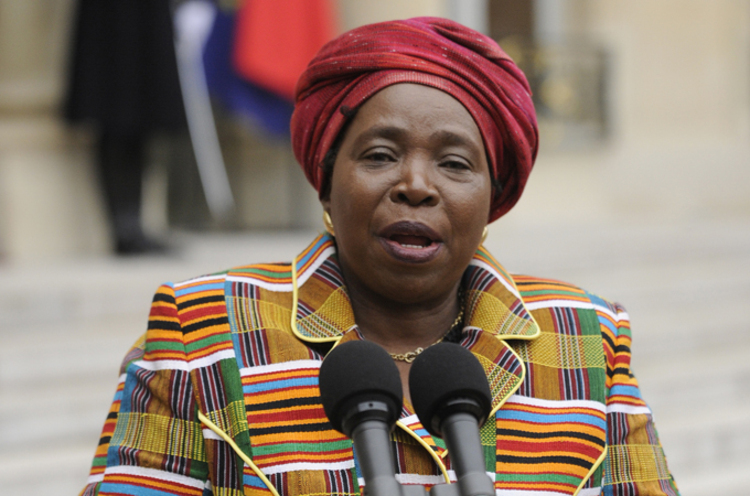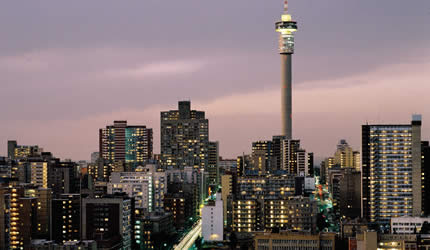Africa has all it takes to make it

 Victoria Ruzvidzo Business Focus —
Victoria Ruzvidzo Business Focus —
Greetings from the place of the New Flower. I hope I find you well. Got to learn this week that the Ethiopian capital’s name Addis Ababa means New Flower in Amharic, the local language.
For a city that came into existence in 1887 the flower may not be exactly new unless its a prophetic name that could mean the city experiences renewal regularly.
This could be closer to the truth given the current characteristic of the city skyline which is all about cranes and other construction machinery. There is so much construction going on, with most of the dilapidated buildings fast being replaces by new sky scrapers.
The Ethiopian economy is certainly on a growth trajectory and building projects all over town are indicative of an economy that is growing and prospering.
This city was the venue of the African Union’s 28th Ordinary Summit that ended here yesterday. Indeed the spirit of the New Flower pervaded through the meetings as most were conducted with renewed vigour as Africa sought to reposition itself as one worth the vast swathe of land on which it occupies.
I have heard, read and even written about the AU before but the meetings, which began last week brought energy and a renewed sense of optimism to get the work going.
Africa is a continent full of possibilities but a seeming inferiority complex brought about by colonialism appears to have sown seeds of lethargy that has seen repeated failure to collectively transform the continent’s vast potential into reality.
There has been so much talk which has not been matched with delivery. But my greatest takeaway from the summit was that Africa has all it takes to make it in this world.
The human capital is amazing. The 4 000 plus delegates that attended the summit from January 23 to 31 included heads of state and government, the academia, journalists, government officials, representatives from several regional and international institutions.
The air about them and the dignity with which many of them carried themselves confirmed my suspicion that here was a significant portion of Africa’s crème de-la crème, with the wherewithal to lead the continent out of misery to a place of abundance, dominance, peace, unity and great joy.
The energy with which heads of State and Government and their teams, and commissioners and their teams who spent hours in productive marathon meetings showed that they meant business.
Such effort, exercised consistently, could turn ugly statistics on wars, deaths, disease and natural disasters into a beautiful story.
Zimbabwe, as a citizen of this continent would obviously contribute and benefit from a prosperous continent. Gone are the days when individual efforts realised sustainable results, with globalisation now forcing regions and continents to commune.
Whereas the AU seemed a far-away organisation previously, it is now a reality that has a Large bearing on our welfare as a country and a people hence my dedicating space and time on the subject.
Zimbabwe has really never been found wanting in terms of representation at key organisations and in key countries, with a sizeable number doing an 8 to 5 at the AU.
Therefore, it would be remiss of us where we to think African issues are not necessarily Zimbabwean issues or vice versa.
The global village we now live in and the advent of technology has amply demonstrated that if we are hundreds of miles apart physically, we are actually closer together as a continent thanks to Skype, twitter, WhatsApp and other social media that have brought us within arms length virtually.
This underscores the importance of Africa coming together to strategies and implement projects and programmes through which the paradox of a rich continent steeped in poverty can be dealt with.
Presently business between African countries stands at a measles 14 percent of total trade.
The continent’s economies have a combined Gross Domestic Product of $3,4 trillion. Existing trade blocs of Sadc, the East African Community, the Common Market for Eastern and Southern Africa and the East African Community need to engage more actively while being replicated elsewhere.
These blocs cover 26 countries, only about half the continent. Their successes can be replicated elsewhere on the continent depending on the economic terrain there.
It was none other than the outgoing AU Commission chief executive herself Dr Nkosazana Dlamini Zuma who said a few days ago that Africa had no choice but to come together and sing from the same hymn book if the continent were to survive the growing demands in the global marketplace.
“With the 2008 /2009 financial crisis slowdown in global growth and yet another commodity price collapse, the reality of the globalisation game of winners and losers are becoming more self-evident.
“These times, though full of challenges, also present vast possibilities for Africa to claim her place in the world. More specifically, the technological breakthroughs in ICT, biotechnology, renewable energy, transport, and other areas can be used to leapfrog our way towards development and shared prosperity,” she advised.
Indeed the AU Summits and other meetings formulate strategies and policies, these need to be domesticated and then applied in concert to achieve intended results.
The meetings of minds here can then be interpreted and implemented at country and regional levels before snowballing into a continental thrust.
Africa is said to have the youngest population, with 65 percent of its people being below the age of 35. This is a currency that can be used to transform the continent’s economy. Hence this Summit’s theme: Harnessing the Demographic Dividend through Investments in Youth was quite appropriate.
This generation is quite techno savvy and has the energy, creativity and innovation to survive the current tide.
Certainly the continent economy demands that countries pull together. Its about time the chilling stories of poverty, disease, strife and wars were relegated to history.
United Nations secretary general was on point on Monday when he told journalists here that Africa was not just about war but that it had the potential to become a dominant force.
Already the continent hosted some of the fastest growing economies such as Ethiopia and Rwanda.
In God I Trust!
Email: [email protected] [email protected]/Whatsapp: +263 772129972








Comments